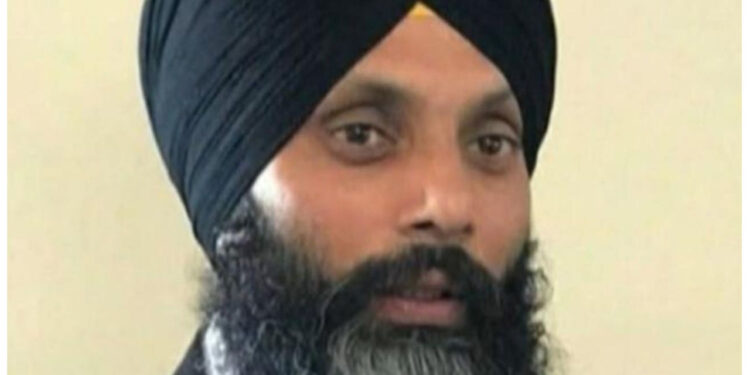Canadian authorities announced on Friday that they have apprehended three individuals in connection with the murder of a prominent Sikh separatist leader in June of last year. This incident, which took place in the outskirts of Vancouver, had caused significant tension between Canada and India.
Three masked gunmen in Surrey, just outside Vancouver, were responsible for the killing of 45-year-old Hardeep Singh Nijjar. Assistant Commissioner David Teboul of the Royal Canadian Mounted Police confirmed the arrest and charging of three suspects. However, at this time, the police are unable to provide details regarding the evidence or the motive behind the crime.
Teboul emphasized that the investigation into this matter is currently ongoing.
Kamalpreet Singh, Karan Brar, and Karampreet Singh are the three suspects who have been apprehended in Edmonton, Alberta, according to Superintendent Mandeep Mooker of the Royal Canadian Mounted Police.
“We won’t stop here with this investigation. We acknowledge that there might be others involved in this murder, and we are fully committed to locating and apprehending each and every one of them,” stated Mooker.
Canadian Prime Minister Justin Trudeau ignited a diplomatic dispute with India in September after suggesting that there were “credible allegations” of Indian involvement in the killing of Nijjar. While India vehemently denied any connection to the slaying and had accused Nijjar of terrorism links, Trudeau emphasized at the G-20 in September that the participation of a foreign government in the murder of a Canadian citizen on Canadian soil was an unacceptable violation of their sovereignty.
In October, Canada took the decision to recall 41 out of its 62 diplomats from India. This move came after the Indian government announced its intention to revoke their diplomatic immunity. In response, India suspended visas for Canadian citizens and issued a travel advisory for Canada, citing security concerns for its diplomats in the country.
In September, U.S. Secretary of State Antony Blinken expressed his concerns about the escalating tension between Canada and India. He emphasized the need for accountability and stressed the importance of allowing the investigation to unfold and reach a conclusive outcome.
Nijjar, a Canadian citizen of Indian origin, was not only a plumber but also a prominent figure in the diminishing movement to establish Khalistan, an independent homeland for Sikhs. Despite being accused of having links to terrorism, he vehemently denied any involvement.
In the 1970s and 1980s, north India was ravaged by a violent Sikh insurgency that lasted for a decade. This insurgency came to a brutal end when the government launched a crackdown, resulting in the deaths of thousands of people, including influential Sikh leaders.
The Khalistan movement, although it has lost much of its political power, still maintains a significant following in the Indian state of Punjab and among the Sikh diaspora abroad. Despite the active insurgency coming to an end years ago, the Indian government has consistently cautioned about the resurgence of Sikh separatists.










